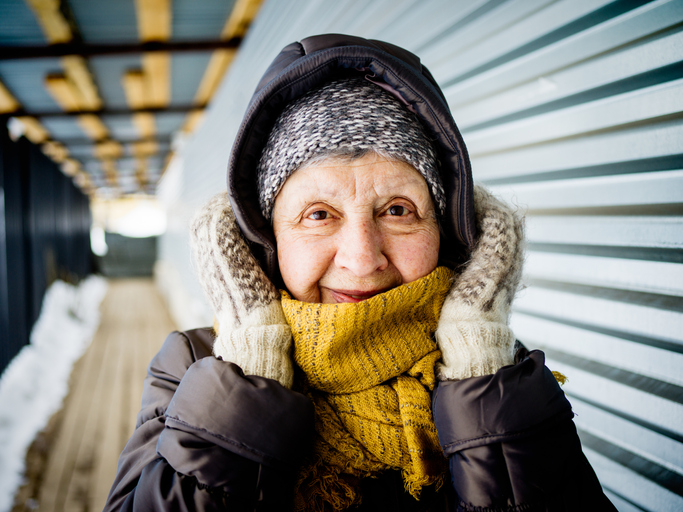The arrival of cold and flu season can pose dangers for many, especially older adults. While most cases are mild enough to be managed at home, for seniors with pre-existing health conditions or weakened immune systems, things can escalate quickly. Prioritizing your health as an aging adult is important to avoid cold and flu complications. At Newcastle Place, we believe in supporting your wellness from all aspects – physical, mental and emotional. Follow these tips to stay healthy this cold and flu season.
Stay Up to Date On Vaccinations
For older adults, receiving your annual flu shot can be the difference between experiencing mild symptoms and needing urgent medical attention. Another important vaccination for people ages 65 and older is the pneumococcal vaccine, which prevents certain types of bacterial pneumonia. Pneumonia is commonly caused by the flu in older adults and can quickly become life-threatening if not treated.
The CDC also recommends that all adults ages 18 and older stay up-to-date with their COVID vaccines, especially if you fall under a high risk category.
Avoid Crowds or Unnecessary Travel
Flu season coincides annually with major holiday gatherings, which can leave some seniors feeling apprehensive. You should absolutely enjoy time with your loved ones and indulge in your favorite holiday celebrations! However, traveling should be kept to a minimum, if possible. Avoiding air travel will reduce exposure risks that come from sharing space with others in crowded airports and close quarters.
Plan gatherings in larger spaces where you can maintain a six-foot distance if needed, and try to avoid unnecessary events with large crowds. Cold, flu and COVID-19 are all transmitted via the droplets that spread when people sneeze or cough. Maintaining a safe distance helps prevent this spread.
Practice Basic Good Health Habits
Keeping up with your year-round wellness habits can help keep your immune system and body strong even during cold and flu season. Make sure you drink plenty of water, get 8 hours of sleep a night, exercise moderately, take your daily multi-vitamin and any other prescribed medications, and eat a well-balanced, nutrient-dense diet.
Each of these habits helps your body build a great defense against any incoming viruses and will help you recover more quickly if you do get sick.
Of course, good health habits don’t start and end with your daily routine. Prevent cold and flu by washing your hands frequently and thoroughly with normal soap. If you can’t avoid crowds, wear a mask for an added layer of protection. Take stock of your mental and emotional health throughout the season often, as well, because both can impact your body’s ability to ward off illness.
How to Identify Early Cold and Flu Symptoms
Feeling under the weather? Here are some key cold and flu symptoms to look out for so you can catch sickness early and treat it promptly.
Common cold symptoms include:
- Sneezing
- Stuffy or runny nose
- Watery eyes
- Sore throat
- Coughing
- Post-nasal drip
In most cases, colds do not cause fever. However, fever is a hallmark symptom of influenza.
Common flu symptoms include:
- Fever
- Fatigue
- Headache
- Muscle or body aches
- Coughing
- Sore throat
- Runny or stuffy nose
If you are experiencing any of these symptoms, reach out to your care provider to discuss treatment options.
Get More Wellness Resources at Newcastle Place
Wellness isn’t just about staying physically healthy (although that is certainly a large component!). At Newcastle Place, we support the full spectrum of wellness in a variety of ways. From our robust amenities to our 8 dimensions of wellness philosophy, we are dedicated to providing personalized wellness programs that combine your individual preferences with the right health and fitness goals to keep you well all year round. Ready to learn more? Schedule a tour and see what life at Newcastle Place looks like today.


